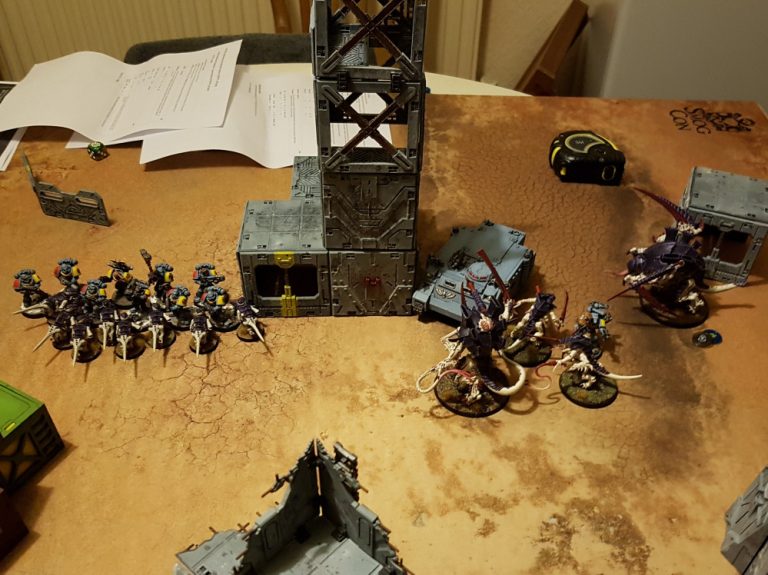Why Was Warhammer Cancelled?
Attention all Warhammer enthusiasts! Have you ever wondered why the beloved game of Warhammer was cancelled? Well, grab a seat and get ready for some shocking revelations. In this article, we will delve into the intriguing story behind the cancellation of Warhammer and uncover the reasons that led to its unfortunate demise. So, put on your detective hats and prepare for a thrilling journey through the rise and fall of this iconic game.
Warhammer, with its rich lore and captivating gameplay, had amassed a loyal following of fans across the globe. However, despite its popularity, the game met an untimely end. But why, you may ask? Well, the answer lies in a complex web of factors that ultimately led to the cancellation. From financial struggles to changing market dynamics, Warhammer faced numerous challenges that proved insurmountable. Join us as we dissect these challenges and shed light on the untold story of why Warhammer was cancelled. So, buckle up and let’s dive into the intriguing world of Warhammer and unravel the mystery behind its demise.

Why Was Warhammer Cancelled?
Warhammer is a popular tabletop game that has captured the hearts of many fans around the world. However, there have been instances where certain versions or editions of the game have been cancelled, leaving fans disappointed and wondering why. In this article, we will explore some of the reasons behind the cancellation of Warhammer and shed light on the factors that contribute to such decisions.
Financial Considerations
One of the primary reasons for the cancellation of a Warhammer game is often financial in nature. Developing and producing a tabletop game requires a significant investment of resources. From designing the game mechanics to creating the miniature models, the costs can quickly add up. If a particular version or edition of Warhammer fails to generate enough sales to cover these expenses and turn a profit, the decision to cancel it becomes a logical one from a business standpoint.
Additionally, the tabletop gaming industry is highly competitive, with numerous games vying for the attention of players. If a Warhammer game is unable to stand out in the market and attract a substantial player base, it may struggle to generate the necessary revenue to sustain its production. In such cases, the cancellation of the game may be seen as a strategic move to allocate resources to more financially viable projects.
Shift in Player Preferences
Another factor that can lead to the cancellation of a Warhammer game is a shift in player preferences. The gaming industry is constantly evolving, and what may have been popular in the past may not necessarily resonate with players in the present. If a particular version or edition of Warhammer fails to capture the interest of players or fails to meet their expectations, the publisher may decide to discontinue its production.
Player feedback and market research play a crucial role in determining the direction of a game’s development. If the feedback indicates that a certain Warhammer game is not meeting the desired level of engagement or satisfaction among players, it can be a strong indicator for the publisher to consider canceling it. This decision allows them to refocus their efforts on creating games that align with the current trends and preferences of the gaming community.
Competition and Licensing Issues
Competition within the gaming industry can also contribute to the cancellation of a Warhammer game. If a rival game emerges that offers a similar experience or captures the attention of players, it can impact the market demand for a particular Warhammer game. In such cases, the publisher may choose to discontinue the game to avoid direct competition or to allocate resources to other projects that have a better chance of success.
Licensing issues can also play a role in the cancellation of a Warhammer game. The Warhammer universe is vast and encompasses various intellectual properties. If the licensing agreements between the publisher and the creators of these properties are not renewed or if there are conflicts regarding the use of certain elements, it can hinder the development and production of a game. In such situations, the publisher may be left with no choice but to cancel the game to avoid legal complications.
In conclusion, the cancellation of a Warhammer game can stem from a variety of reasons, including financial considerations, a shift in player preferences, competition, and licensing issues. These factors highlight the complex nature of the gaming industry and the challenges faced by publishers in bringing successful games to the market. While the cancellation of a beloved Warhammer game can be disappointing for fans, it is important to understand that these decisions are often made with the intention of ensuring the long-term viability and success of the franchise.
Key Takeaways: Why was Warhammer cancelled?
- 1. Warhammer was not cancelled, but some games based on the Warhammer franchise have been cancelled due to various reasons.
- 2. The cancellation of a game can occur if it doesn’t meet the quality standards set by the developers or if it fails to generate enough interest from the players.
- 3. Financial issues can also lead to the cancellation of a game, as the development costs may exceed the projected revenue.
- 4. Sometimes, changes in the market or shifts in the gaming industry can result in the cancellation of a game, as developers need to adapt to the evolving trends.
- 5. It’s important for game developers to carefully assess the potential success and viability of a game before investing significant resources into its development to avoid potential cancellations.
Frequently Asked Questions
Warhammer, the popular tabletop game, has been a source of enjoyment for many players over the years. However, there are often questions surrounding its cancellation. Here are some frequently asked questions and their answers.
1. What led to the cancellation of Warhammer?
Warhammer’s cancellation was not due to a single reason, but rather a combination of factors. One of the main factors was the decline in popularity of tabletop gaming in general. With the rise of digital gaming, many players were drawn away from physical tabletop games like Warhammer.
Additionally, the cost of producing and maintaining Warhammer became increasingly unsustainable. The game required regular updates and expansions to keep players engaged, which was expensive for the company. These financial challenges, combined with the changing gaming landscape, ultimately led to the decision to cancel Warhammer.
2. Were there any specific issues with Warhammer that contributed to its cancellation?
While Warhammer had a dedicated fanbase, there were some issues that contributed to its cancellation. One of the main challenges was the complexity of the game. Warhammer had intricate rules and mechanics that could be overwhelming for new players.
Furthermore, the game required a significant time commitment. Matches could last for hours, making it difficult for some players to find the time to play. These factors, along with the increasing competitiveness of the gaming industry, posed challenges for Warhammer’s continued success.
3. Did the cancellation of Warhammer affect the community?
Yes, the cancellation of Warhammer had a significant impact on the community. Many players had invested time, money, and emotional attachment to the game. The news of its cancellation was met with disappointment and sadness.
However, the Warhammer community is resilient and resourceful. Many players have transitioned to other tabletop games or found alternative ways to continue enjoying the Warhammer universe, such as through fan-created content or online adaptations.
4. Is there any hope for a revival of Warhammer in the future?
While there is always a possibility of a revival, it is uncertain whether Warhammer will make a comeback in its original form. The tabletop gaming industry has seen a resurgence in recent years, but the landscape has also changed significantly.
If Warhammer were to return, it would likely require adaptation to suit the current gaming trends and preferences. Perhaps a digital version or a streamlined edition could bring new life to the franchise. Nonetheless, only time will tell if Warhammer will rise again.
5. Are there any alternative games for Warhammer enthusiasts?
For those who miss the world of Warhammer, there are several alternative games available that capture a similar essence. Games like Age of Sigmar, Kings of War, and Warmachine offer strategic tabletop experiences with rich lore and engaging gameplay.
Furthermore, the Warhammer community itself is vibrant and creative. Many players have created their own custom rulesets, scenarios, and miniatures, allowing for endless possibilities within the Warhammer universe. These alternatives provide opportunities for enthusiasts to continue enjoying the hobby they love.
The Real Reason GW Replaced Warhammer Fantasy
Final Thoughts
So, why was Warhammer cancelled? After diving deep into the world of Warhammer and its cancellation, it becomes clear that there were a combination of factors at play. From financial constraints to market saturation, it seems that the decision to cancel Warhammer was not made lightly. However, it’s important to remember that even though the game may no longer be in production, its impact and legacy still live on.
One of the key reasons for Warhammer’s cancellation was the challenging financial landscape. Developing and maintaining a game of such scale requires significant resources, and if the returns aren’t meeting expectations, it becomes difficult to sustain. Additionally, the gaming industry is constantly evolving, with new trends and technologies emerging all the time. This can lead to market saturation, making it harder for a game to stand out and attract a dedicated player base.
Despite its cancellation, Warhammer has left a lasting impression on the gaming community. The intricate lore, detailed miniatures, and immersive gameplay created a devoted fan base that continues to thrive even after the game’s end. The impact of Warhammer can be seen in the countless discussions, fan creations, and even spin-off games that have emerged in its wake. While it may be the end of an era for Warhammer, its legacy will undoubtedly endure.
In conclusion, the cancellation of Warhammer was a result of various factors, including financial challenges and market saturation. However, the game’s impact and legacy continue to resonate with fans around the world. The world of Warhammer may no longer be actively expanding, but its influence on gaming culture is undeniable. As we bid farewell to Warhammer, let’s appreciate the memories it has given us and celebrate the enduring spirit of this beloved franchise.






